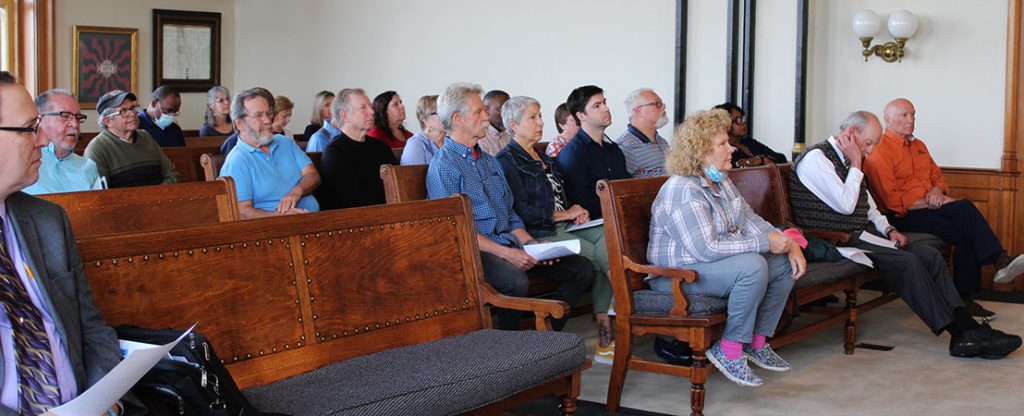
As requested by members of the Board of Aldermen, Tom Carruthers, Senior Assistant General Counsel with the NC League of Municipalities, reviewed the laws governing ethics for elected officials and answered questions during the New Bern Board of Aldermen Meeting on March 22, 2022.
He talked about a few topics related to ethics. This is one of a series of articles and videos that we will be sharing with you so we can better understand how local government works.
During Tom Carruthers presentation, Alderman Aster asked, “Would you please go a little bit into the board’s responsibilities during a closed session.”
Carruthers Responded, “Because closed sessions are vital to the proper functioning of the city, some things are confidential like personnel. We are not a sunshine state in North Carolina and personnel laws are protected, except for very limited things like the date of hire, the date of fire, and the promotions and the salaries. But if the board is reviewing performance of a person that has been appointed or discussing the employee performance of someone that the town has hired, those are classic examples of what needs to go into closed session.”
“Now economic development is an absolutely appropriate reason to go into closed session because of the nature of business. Businesses like to protect their information because of the competitive nature and they need to have the ability to speak frankly with the board and understand whether or not there is a consensus to move forward. Now any economic incentive that the board may award would be a public vote, but the discussions do not have to be occur in a the open session. What you’re going to find is most businesses want it in closed session to protect their business interest while they’re still making their decision”.
To receive legal advice from your attorney. Another classic reason why you need to go into closed session. Cases are competitive, that’s the American judicial system and if you were to discuss all of your thoughts and all of your worries and all of your pros and all of your cons about independent litigation, you would be handing victory to the person suing the town or who this town is suing and that’s frankly not a responsible way to run a litigation. Another perfect reason why it needs to go into closed session.”
“Now there’s only five more but I’d probably need to look up the rest to comment.”
Aster asked, “What about the board members or the elected official’s responsibility to keep what happens in closed session in closed session. We’ve been told that it’s not illegal for you to come out and discuss with the press what’s in closed session or you know, what is the elected official’s responsibility for economic incentive or for litigation.”
Carruthers responded, “For economic incentive or for litigation, there is no mandated confidentiality of what occurs in closed session. And if a board member wants to discuss it, that board member does not violate the law in doing so. A question that must be asked is, what is the purpose of going into closed session, even when it’s necessary in the town’s interest. If it cannot be maintained confidential until the right time, it’s a matter of trust. All business has to be conducted with trust. Politics should be conducted with trust and operates much better”.
Watch the discussion here:
Once again, this is the first of a couple of articles and videos that will cover Tom Carruthers presentation.
Let us know if you have any comments or questions by sending an email.
Wendy Card, Editor-in-Chief

